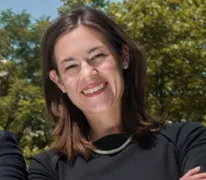Pearson's Donnelly: India will be our first market for The Pearson Affordable Learning Fund before we expand to other countries
Earlier this week, The Pearson Affordable Learning Fund (PALF) announced a partnership with Village Capital to launch a mentoring and support program for ‘edupreneurs’ (education entrepreneurs) targeting low-income communities in India. PALF was set up last year by Pearson Plc to invest in affordable private schools and other low-cost educational solutions. PALF will work with Village Capital- a company that uses peer driven incubation model- to identify two ‘edupreneurs’ who will each receive a seed investment of up to $75,000 (about Rs 44.83 lakh).
About 16 companies will participate in workshops and receive mentoring advice from other entrepreneurs, investors and professionals. The two winners will be selected through a peer review, selected by fellow entrepreneurs participating in the program.
PALF has committed $100,000 (Rs 59.33 lakh today) to the program with Village Capital contributing to the remaining $50,000 (Rs 29.66 lakh today).

Katelyn Donnelly, executive director at Pearson and of the Affordable Learning Fund gave me more details via email. Amongst other things she explained why India, why the peer review model for choosing winners, why ‘edupreneurs’ should choose PALF over other social venture funds and how India will be the test market for PALF before they scale to other developing countries.
These are edited excerpts.
Social Story (SS): Does Pearson have a similar partnership in other country?
Katelyn Donnelly (KD): Not yet, India is our first target market for the Palf-Vilcap edupreneur program. We hope to learn a lot from this experience and scale to other markets in the developing world.
SS: Why do you think India is ripe for this kind of investment?
KD: There is a huge demand for high quality; low cost education solutions in India and parents have shown an ability and willingness to pay. We think that this trend will continue and that new companies that can deliver more learning at lower cost have a real opportunity.
SS: How does PALF fit into Pearson’s other programs in India?
KD: Most of Pearson’s existing products target the high or mid income segment. PALF is looking to investment in on the low-income segment. Thus PALF can help bring Pearson India products and services to a new market base and help us learn how to design lower cost products.
SS: What is the one thing that that you will look for when determining whether the applicant makes the cut or not?
KD: Quality of the management team, do they have what it takes to build a productive team, sell their vision and deliver a successful product.
SS: Why should an ‘edupreneur’ choose Pearson over another investor or incubation program?
KD: Pearson is the world’s largest and leading learning company. We operate in over 70 countries and have market-leading businesses in almost every vertical. We can tap into the network of expertise on how to build successful businesses and achieve scale. We are also one of the only solely education focused developing world funds, making us specialists.
SS: What kind of equity will Pearson take and how long will it stay invested?
KD: This is confidential.
SS: Explain why the peer review model was chosen over an expert panel?
KD: As a fund, we are driven by data and analysis of what works. We were impressed by the work Village Capital had done to iterate and perfect their model, particularly the results from the peer review model.
SS: Will PALF consider follow-up capital to the initial investment?
KD: Yes, the PALF would love to follow on investments into scalable, profitable ventures that solve some of the tough issues in learning today.
SS: Other than the cash infusion and the incubation process what else will Pearson offer?
KD: We hope to offer introductions and partnerships into our global network of foundations, NGOs, multilaterals, and other funds. Additionally, we hope to build a community of companies that we will track throughout their life cycle and continue to offer advice, research and potentially investment.







